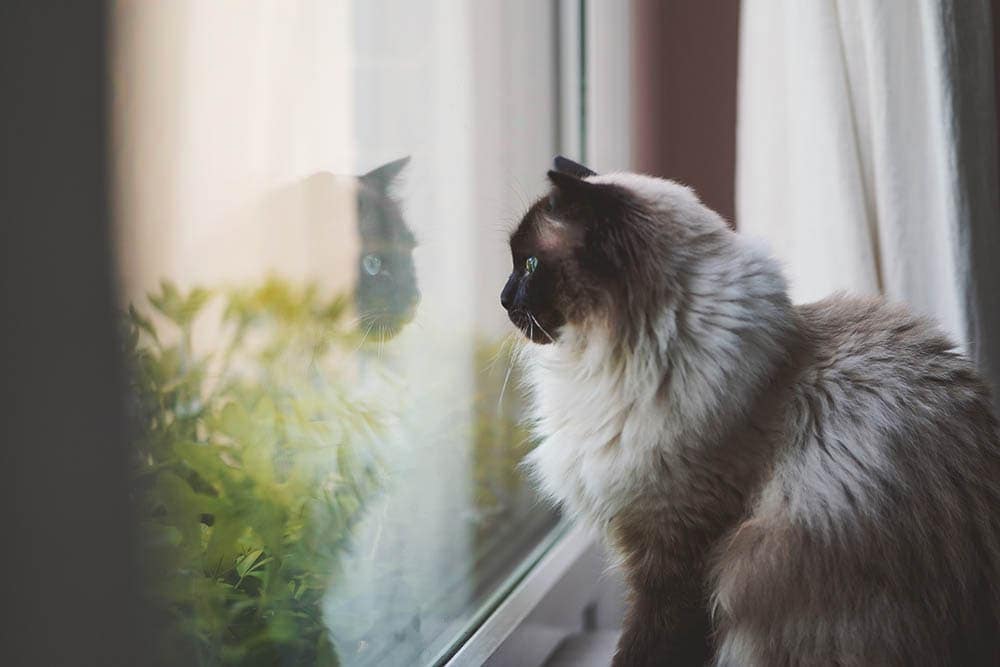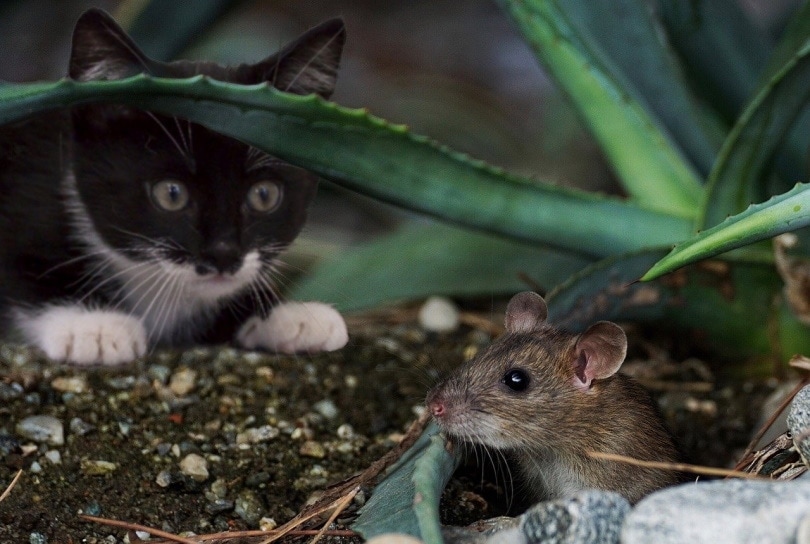Why Cats Attack Pregnant Women: 5 Reasons & What to Do About It
By Lorre Luther
Updated on
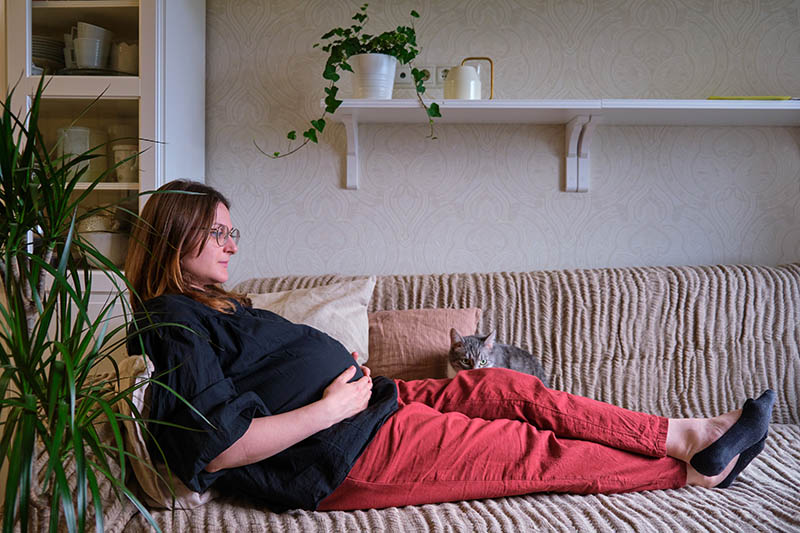
Many cats are well-behaved around pregnant people, particularly those they consider part of their family. But every now and then, some become aggressive towards those expecting. Cats are exposed to new smells, routines, and products when their owner is expecting. And some cats don’t react well to environmental changes, often becoming stressed or anxious, which can lead to aggressive behavior. Keep reading to learn more about why cats sometimes attack pregnant people.
The 5 Reasons Cats Attack Pregnant Women
1. They’re Feeling Neglected
Cats that are attached to their human companions often develop anxiety when not receiving enough attention. It’s linked to new household routines that sometimes mean cats aren’t getting cuddles and playtime in the ways and at the times they expect.
Cats are creatures of habit that can be easily stressed when things don’t go as usual, and they can be exquisitely sensitive to even minor changes. While it may seem as if your cat is still getting lots of love and attention, they may be expecting attention at times when they’re no longer getting it.
2. They’re Sensing Hormone Changes
Cats have incredibly sharp senses of smell. They can sniff out subtle scents that humans don’t have enough scent receptors to pick up or interpret. Cats can most likely pick up on hormone changes that accompany pregnancy, which they may associate with negative environmental changes.
Cats primarily rely on scent to recognize each other. They also use smell to identify familiar environments and people. Due to pregnancy, their person’s old comforting scent is now different.
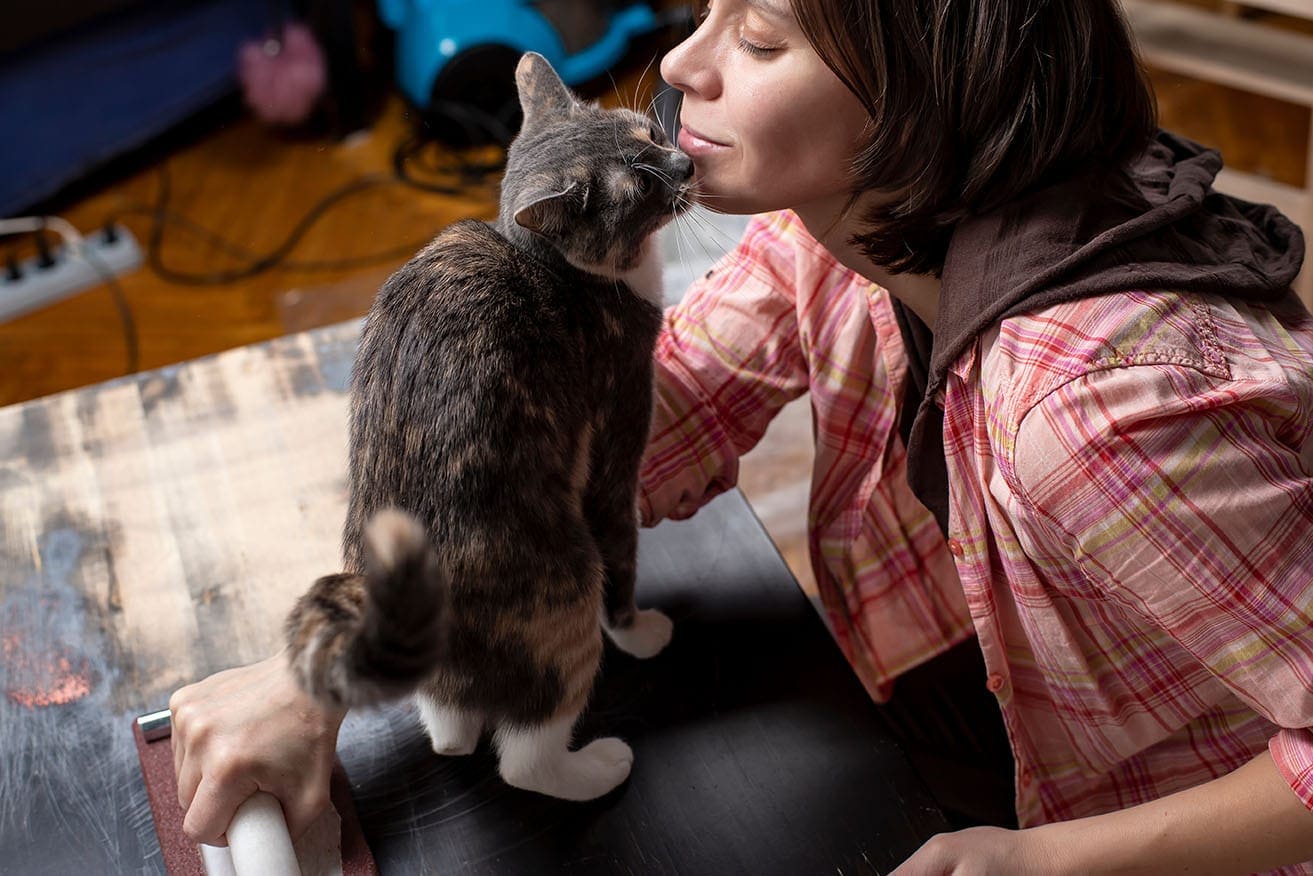
3. They’re Scared
Stress and anxiety can lead to fear-based aggression in cats. Pets who are anxious about changes and insecure can bite and strike out when not feeling comfortable. If a cat was given away by a pregnant owner before coming to its new home, it may become scared of losing its home and react out of fear when the new owner is pregnant. Other signs to look out for that may indicate feline anxiety include lack of appetite and avoiding eye contact with the pregnant person.
4. They Have Behavioral Issues
Many cats are perfectly mellow when feeling secure and content but have underlying behavioral issues that can manifest under stressful conditions. Cats often pick up on and respond to their loved one’s stress levels. If you’re worried or concerned, your cat may be picking up on and adapting to your emotions.
Other signs of feline stress and anxiety include excessive licking and hiding. These problems often become manageable once cats start feeling comfortable once again.
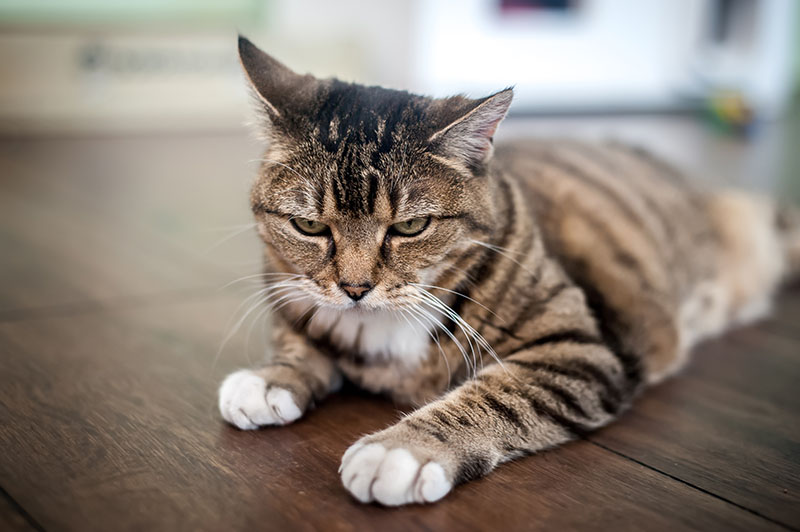
5. They’re Unhappy About Environmental Changes
Cats often become stressed by environmental changes, such as being excluded from rooms they previously had access to, which can lead to them feeling neglected, excluded, and afraid of losing their person’s love.
Cats most likely view the pregnant person as the source of the insecurity, leading to moments of fear-based behavior. Increasing your cat’s overall level of comfort may help them feel more secure and at home, which may lead to reduced territoriality.
The 4 Ways to Deal With Feline Aggression
The absolute best way to prevent or limit feline aggression is to take a few preventative steps ahead of time to help your cat acclimate to new routines and to ensure they don’t feel left out by the changes going on around the house. Simply ignoring the behavior and allowing your cat space is often the best way to react toward aggression. Below are a few tips to help your cat hit their groove again.
1. Take Mealtime Changes Slowly
Pregnancy often results in joy, happiness, anticipation, and changes in household duties. Take any alterations to your cat’s mealtime routine slowly to give them time to adapt. Start by allowing a family member to feed your cat and take care of your cat’s litter. If they feed the cat at the same time every day and spend time playing with it, your pet will redirect its attention away from you and will be less likely to act aggressively.
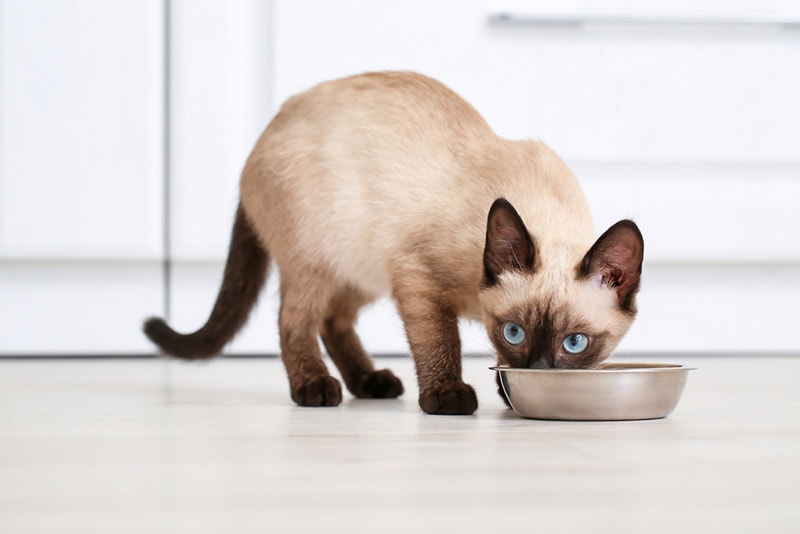
2. Create Dedicated Bonding Time
Dedicated bonding time can go a long way to ensure cats don’t feel left out or neglected. While it’s often impossible to continue your routine when pregnant, you can adapt a new schedule to spend time with your cat. Cats love routines, so try to play with your cat and spend time with it at the same time every day.
3. Let Your Cat Take the Lead
Cats often prefer to take the lead when it comes to human interaction. Speak to your cat softly and move slowly when approaching. Consider giving them a boop (finger-nose-nose greeting)—it’s a sweet, pressure-free way to let your cat know you’d like to pet it. However, if your cat is uninterested in interacting, that’s okay too.

4. Give Your Cat a Feline-Friendly Space
Many things change in the days leading up to the arrival of a new baby. Cats are often restricted from future nursery areas they were once permitted to explore, which can increase your cat’s sense of being excluded. Consider creating a feline paradise in another room for your cat where they can retreat and decompress.
You can add vertical perches, such as cat trees and shelves, and have toys and places for your buddy to hide. Many cats become anxious around crying babies, so having a place to escape when they become overwhelmed can keep them calm. Modifying your home ahead of your baby’s arrival gives your cat plenty of time to become accustomed to using their room as a retreat before the big day.
Conclusion
Cats often have trouble adjusting to changes, and almost everything involving babies fits the bill. When cats become stressed due to new routines, they sometimes become aggressive, even toward those they love. Because pregnant women produce different hormones than usual, their altered scents don’t provide a familiar sense of comfort to their cats and can cause stress.
Featured Image Credit: Zhuravlev Andrey, Shutterstock




